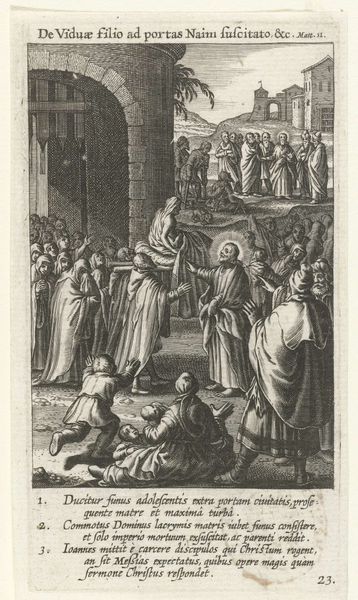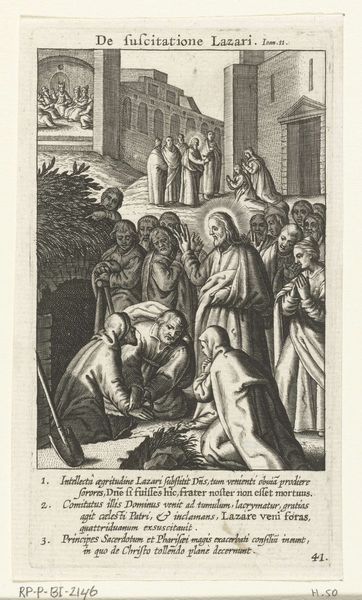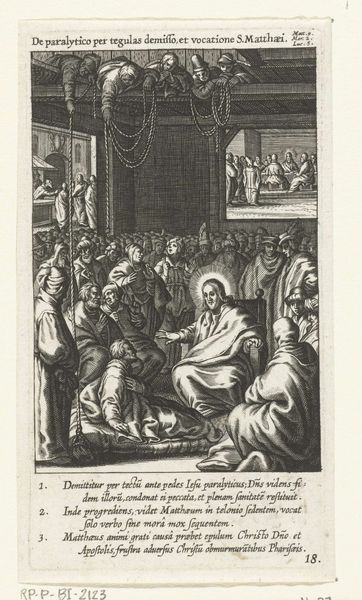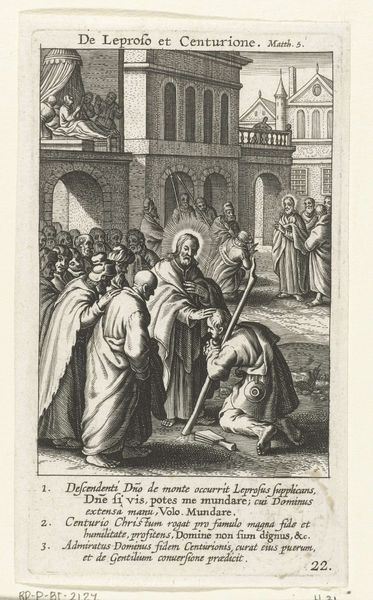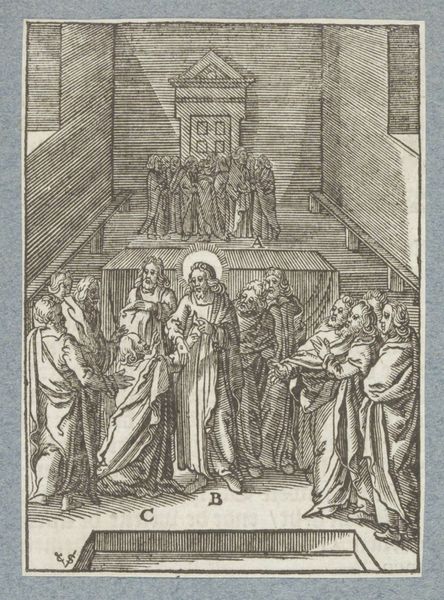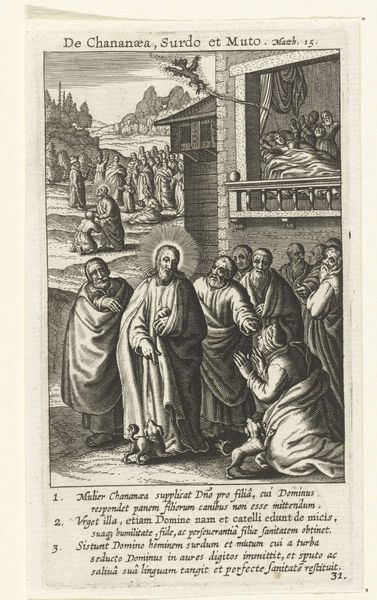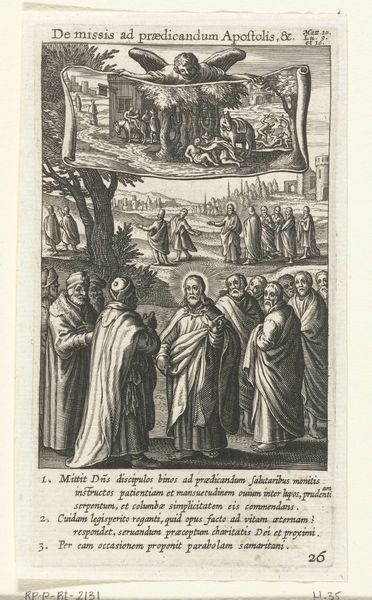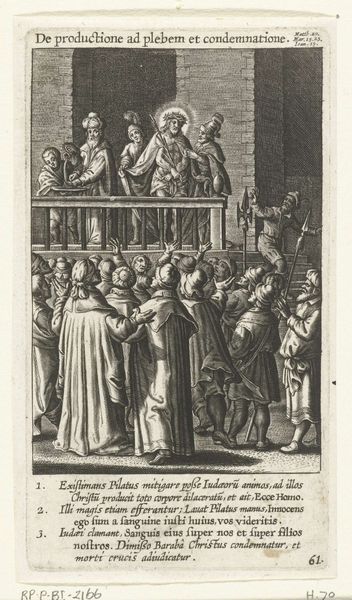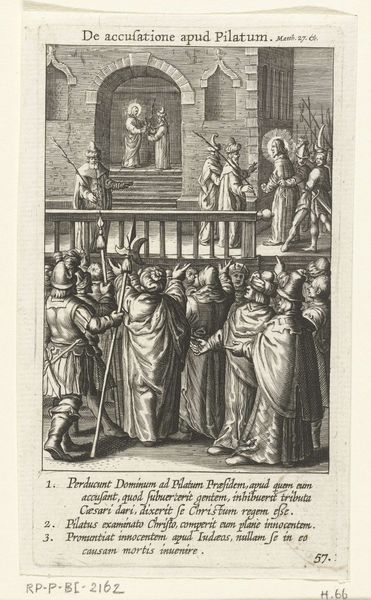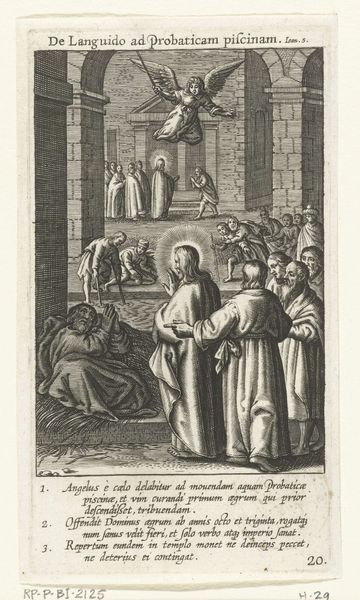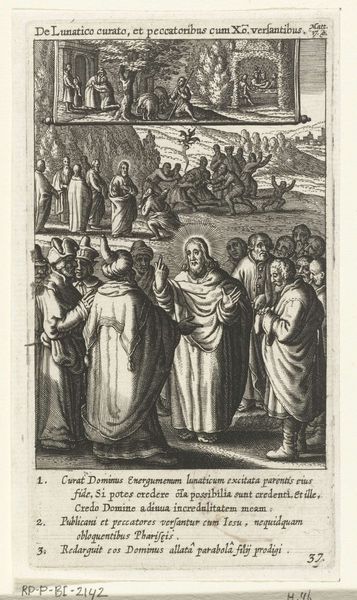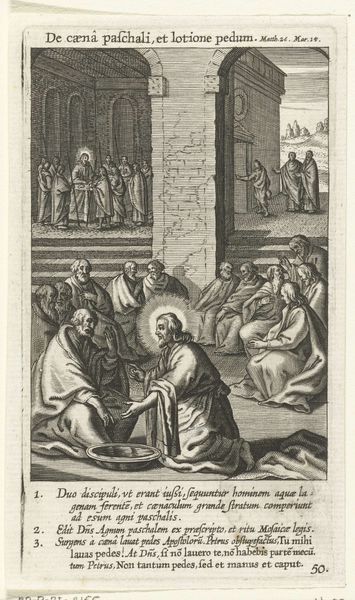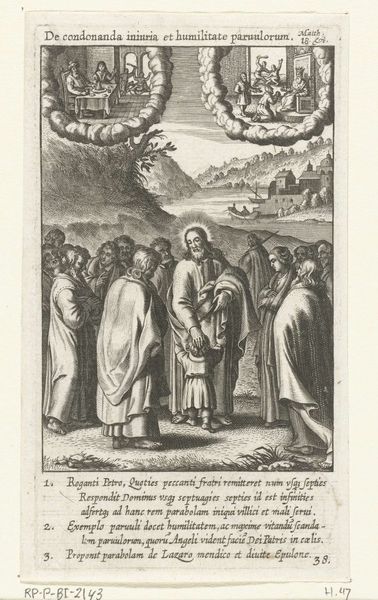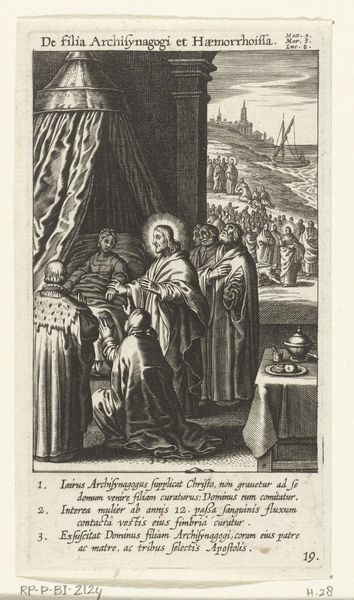
Christus verschijnt aan de discipelen en de ongelovige Thomas 1590 - 1622
0:00
0:00
boetiusadamszbolswert
Rijksmuseum
print, engraving
#
narrative-art
#
baroque
# print
#
old engraving style
#
figuration
#
11_renaissance
#
line
#
history-painting
#
engraving
Dimensions: height 133 mm, width 75 mm
Copyright: Rijks Museum: Open Domain
Curator: I'm struck by the sheer detail in this engraving. It's titled "Christ Appears to the Disciples and the Incredulous Thomas," and it dates roughly from 1590 to 1622, attributed to Boëtius Adamsz. Bolswert. It’s part of the Rijksmuseum collection. Editor: It feels almost claustrophobic, doesn’t it? So many figures packed together, rendered in such stark lines. The drama comes from this feeling of confinement combined with a divine manifestation. Curator: That compression is quite typical of the late-Mannerist, early Baroque period. Look how Bolswert stages the scenes, layering figures both in the foreground and background to represent sequential moments. We see the resurrected Christ appearing before his disciples, and the upper scene depicts his appearance within the locked room. Editor: And the materiality! As an engraving, the image relies solely on the incised line, right? The pressure, the skill in varying the width and depth…you really see the engraver's hand laboring over each mark. And the distribution network required to make such prints circulate. Curator: Exactly. The emphasis on line serves multiple purposes here. Spiritually, it evokes a sense of otherworldly, ethereal quality appropriate for the depiction of the miraculous. The fine hatching and cross-hatching create the shadows. It gives the sense of volume but at the same time, highlights the symbolism over the substance. Editor: Speaking of substance, you can practically feel the weight of the doctrines involved being rendered as reproducible printed form. I imagine each of these prints was traded and held within distinct socioeconomic networks for varying costs, according to class. It's interesting how faith itself becomes a product of the labor performed to materialize this moment. Curator: It does present the symbolic weight of the event—the validation of Christ’s resurrection through Thomas's physical examination of the wounds. It underscores the power of belief versus doubt, doesn't it? The importance of sensory validation to reinforce the intangible. Editor: Thinking about it from the vantage of the contemporary era in art, what resonates for me is the raw means by which people used images to convey such weighty spiritual concerns and philosophical precepts using only these techniques in print. I love it. Curator: A potent reminder of faith, doubt, and the transformative power of tangible proof made accessible by this printed devotional image!
Comments
No comments
Be the first to comment and join the conversation on the ultimate creative platform.
